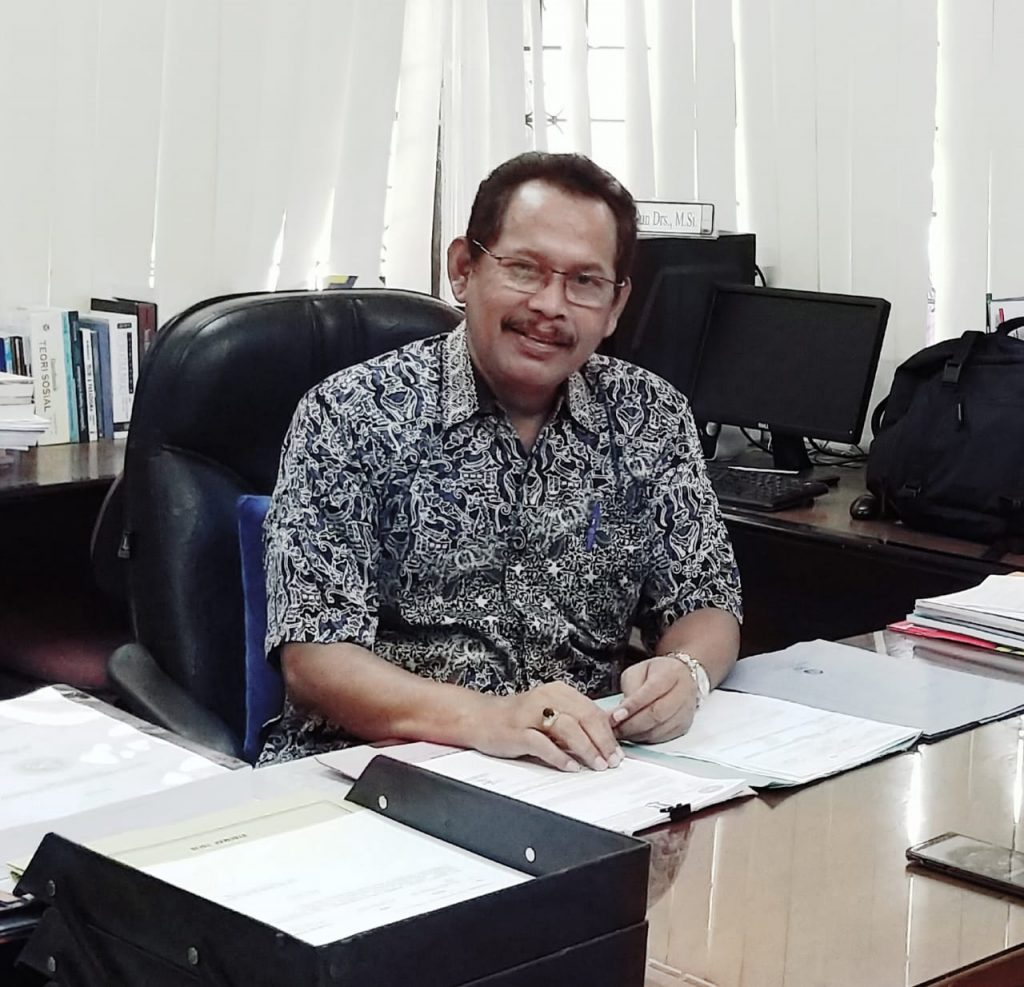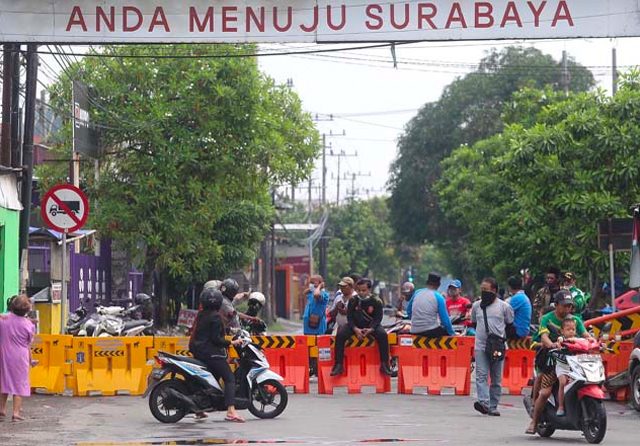UNAIR NEWS – On Tuesday, April 21, 2020, the Minister of Health of the Republic of Indonesia (Menkes RI) approved the request of Large-Scale Social Distancing (PSBB) through Minister of Health Decree number HK.01.07 / Menkes / 264/2020. Previously, Monday, April 20, 2020, East Java Governor Khofifah Indar Parawansa sent a letter requesting PSBB implementation in Surabaya, Sidoarjo, and Gresik.
These three areas are known to be have most confirmed Covid-19 cases in East Java, 315 confirmed patients in Surabaya, 66 patients in Sidoarjo, and 21 patients in Gresik. (Data of East Java Provincial Government as of April 22)
Responding on PSBB implementation, Prof. Dr. Mustain Drs., M.Si., Professor of Sociology, Faculty of Social and Political Sciences, Universitas Airlangga (FISIP UNAIR) gave some input. According to him, PSSB policy is the best and middle ground and is beneficial for both the country and society. This is based on consideration of the condition of Indonesian people who have an agrarian culture that is full of togetherness (communal), not individual and solitary such as the people of European countries and China.
“For Indonesia, the policy of breaking the chain of transmission of Corona with PSBB is a difficult choice but is most likely to be done. It’s not possible to use lockdown because of social, cultural, economic factors, “said Prof. Mustain.
“Therefore, the PSBB is considered as lockdown and count, which in principle limits the mobility of people, keeps the distance between people so people do not get together and communicate, at least for two weeks,” he continued.
For PSBB to be implemented effectively, Prof. Mustain said that there must be preconditioning, conditioning, and readiness, both for the enforcement apparatus and the community. According to him, the community must be given understanding through good dissemination so they truly understand how dangerous Covid-19 is.
It should be done so that the community realized the importance of staying at home and would not leave the house. Likewise, food stalls, coffee shops, hangout spots, must not open and all shops and plazas also shut down.
“All offices, except certain offices which serve the community, are still open but limited. The PSBB policy is indeed restraining and is therefore very unpleasant. But for the common good, a bitter policy must be accepted by all parties for two weeks. For this reason, it is necessary to prepare the community and PSBB enforcement personnel in the field, “he explained.

With good preparation to implement PSBB, he continued, like it or not, there are no more reasons for people to leave the house. For this reason, PSBB must be firmly and clearly enforced. All of that will be able to be done if all the basic needs of the community, especially the poor, have been fulfilled at least during the implementation of the PSBB.
Prof. Mustain said that the PSBB had been conducted in Jakarta could be used as a reference for learning. “We need a few days to prepare. For example, identifying and mapping the conditions of existing poor people who need help through camat, lurah, RT, RW. RT(head of neighborhood) records the needs of the poor in their neighborhood, then the data is deposited to RW, RW deposits to the lurah, up to the head of the region, “said Prof. Mustain.
“With good preparation, everyone will stay at home. There is no reason to leave the house for work reasons. If you have to leave the house, the reason must be clear with RT’s permission, “he added. (*)
Author: Asthesia Dhea Cantika
Editor : Binti Q. Masruroh





